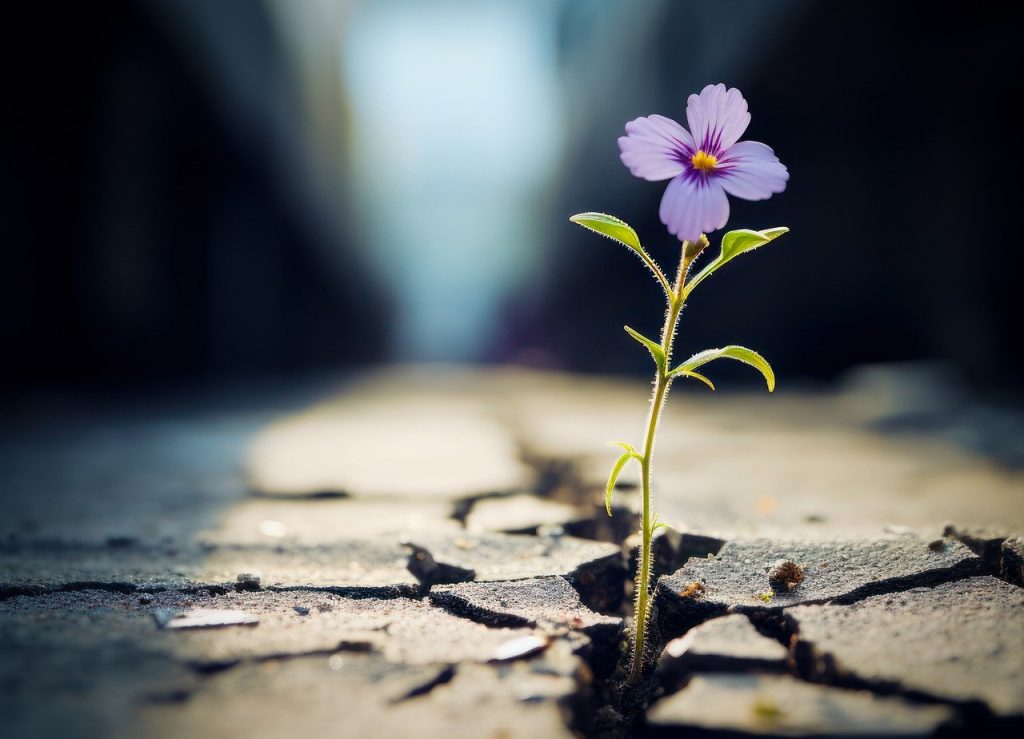In life, we all face adversity. Whether it’s a personal setback, a challenging work situation, or a global crisis, the ability to navigate through difficult times with resilience is crucial. Cultivating a resilient mindset is not only about bouncing back from adversity, but also about growing and thriving in the face of challenges. It’s about developing an inner strength and resourcefulness that enables you to adapt, persevere, and ultimately, emerge stronger than before. In this article, we will explore practical strategies and insights that can help you cultivate a resilient mindset in times of adversity. So, let’s dive in and discover how you can harness the power of resilience to overcome life’s obstacles and thrive in the face of adversity.

This image is property of pixabay.com.
Understanding Resilience
Resilience can be defined as the ability to bounce back and recover from challenges, setbacks, and adversity. It is the inner strength that enables individuals to navigate through difficult times, adapt to change, and thrive in the face of adversity. Developing a resilient mindset is crucial for personal growth, overall well-being, and success in various aspects of life.
The Importance of Resilience
Resilience plays a vital role in our lives, as it helps us cope with the inevitable ups and downs that we face. When we possess a resilient mindset, we are better equipped to handle stress, overcome obstacles, and maintain a positive outlook. Resilience enables us to maintain our mental and emotional well-being, build stronger relationships, and achieve our goals despite the challenges we may encounter along the way.
The Benefits of Cultivating a Resilient Mindset
Cultivating a resilient mindset offers numerous benefits that can positively impact our lives. When we adopt a resilient mindset, we are more likely to view setbacks and failures as opportunities for growth and learning. We become more adaptable and flexible in our thinking, allowing us to navigate through change and uncertainty with grace and ease. A resilient mindset also enhances our problem-solving skills, decision-making abilities, and overall emotional well-being.
Recognizing Adversity
Adversity comes in various forms and can manifest differently for each individual. It is important to recognize and acknowledge the presence of adversity in our lives in order to effectively address and overcome it. By understanding the different forms of adversity, we can develop a deeper awareness of the challenges we face and begin to take necessary steps towards building resilience.
Identifying Different Forms of Adversity
Adversity can present itself in different areas of our lives, including relationships, career, health, and personal development. It can be in the form of personal setbacks, failures, loss, trauma, or even daily stressors. Recognizing the various forms of adversity helps us gain a clearer understanding of the specific challenges we are dealing with and enables us to develop effective strategies for resilience.
Understanding the Impact of Adversity on Mental Health
Adversity can have a significant impact on our mental health. It can lead to increased stress levels, anxiety, depression, and a sense of helplessness. Recognizing the impact of adversity on our mental health is crucial in order to seek appropriate support and take proactive steps towards building resilience. By addressing our mental health needs, we can strengthen our ability to cope with adversity and maintain overall well-being.
Developing Awareness of Personal Adversity
In order to build resilience, it is essential to develop awareness of our personal adversity. This requires honest self-reflection and a willingness to explore our own strengths and weaknesses. By acknowledging and understanding our personal challenges, we can begin to develop strategies to overcome them and cultivate a resilient mindset.
Building Emotional Awareness
Emotions play a vital role in our resilience and ability to navigate through adversity. By exploring the connection between emotions and resilience, we can gain a deeper understanding of our emotional responses to challenges. This awareness allows us to manage our emotions effectively, regulate our stress levels, and maintain a positive outlook.
Exploring the Connection Between Emotions and Resilience
Emotions are closely tied to our resilience. By understanding how our emotions impact our mindset, we can better respond to adversity. Emotions such as fear, anger, and sadness can be natural responses to challenging situations, but they can also hinder our ability to bounce back. By learning to recognize and manage these emotions, we can cultivate a resilient mindset that allows us to navigate through adversity with greater ease.
Practicing Emotional Intelligence
Emotional intelligence is the ability to understand and manage our own emotions, as well as the emotions of others. By practicing emotional intelligence, we can strengthen our resilience and effectively navigate through adversity. This involves developing self-awareness, empathy, and effective communication skills. By honing these skills, we can build healthier relationships, manage conflicts, and enhance our overall well-being.
Understanding the Power of Self-Reflection
Self-reflection is a powerful tool in building resilience. By taking the time to reflect on our thoughts, actions, and experiences, we can gain valuable insights and learn from our past challenges. Self-reflection allows us to identify patterns, recognize limiting beliefs, and make positive changes in our mindset and behavior. By incorporating self-reflection into our daily lives, we can cultivate a resilient mindset and continuously improve ourselves.

This image is property of pixabay.com.
Developing a Growth Mindset
A growth mindset is the belief that our abilities and intelligence can be developed through dedication and hard work. By embracing a growth mindset, we open ourselves up to new possibilities and opportunities for growth. This mindset promotes resilience by challenging limiting beliefs and assumptions, allowing us to overcome obstacles and achieve our goals.
Challenging Limiting Beliefs and Assumptions
Limiting beliefs and assumptions can hinder our resilience and prevent us from reaching our full potential. By challenging these beliefs and assumptions, we can break free from self-imposed limitations and expand our possibilities. This involves questioning negative self-talk, reframing our thoughts, and embracing a more positive and optimistic perspective. By shifting our mindset, we can cultivate resilience and unlock our true potential.
Embracing a Mindset of Continuous Learning and Improvement
A growth mindset thrives on continuous learning and improvement. By embracing the idea that there is always room for growth and development, we open ourselves up to new opportunities and challenges. This mindset enables us to adapt to change, learn from failures, and continually strive for personal and professional growth. By nurturing a mindset of continuous learning, we can cultivate resilience and unleash our full potential.
Cultivating Self-Compassion
Self-compassion is the practice of treating ourselves with kindness, understanding, and acceptance. It involves recognizing that we are human and that we are bound to make mistakes and face challenges. Cultivating self-compassion is essential in building resilience, as it allows us to bounce back from setbacks and failures with a sense of kindness and understanding towards ourselves.
The Importance of Self-Compassion
Self-compassion is crucial for resilience because it helps us maintain a positive and supportive inner dialogue. When we treat ourselves with self-compassion, we are more likely to bounce back from challenges and setbacks. It allows us to learn from our mistakes without self-judgment, forgive ourselves for our shortcomings, and move forward with a sense of grace and resilience.
Practicing Self-Kindness and Self-Acceptance
Practicing self-kindness and self-acceptance is an important aspect of cultivating self-compassion. This involves treating ourselves with love, care, and understanding, especially during challenging times. By practicing self-kindness, we can develop a nurturing and supportive relationship with ourselves, which strengthens our resilience and well-being.
Learning to Forgive Oneself and Let Go of Self-Judgment
Forgiving oneself and letting go of self-judgment is essential for building resilience. Holding onto past mistakes and self-judgment can hinder our ability to bounce back from adversity. By learning to forgive ourselves, we can cultivate a sense of inner peace, resilience, and the ability to move forward with a positive mindset.
Building a Supportive Network
Building a supportive network of individuals who provide emotional support is crucial for cultivating resilience. By recognizing the value of social support, we can surround ourselves with people who uplift us, inspire us, and provide us with guidance during challenging times. Having a strong support system enables us to lean on others for emotional support and encouragement, which enhances our ability to bounce back from adversity.
Recognizing the Value of Social Support
Social support plays a significant role in our resilience. It provides us with a sense of belonging, validation, and comfort. By recognizing the value of social support, we can actively seek out individuals who will be there for us during difficult times. This can include friends, family, mentors, or support groups. Surrounding ourselves with a supportive network enhances our resilience and overall well-being.
Identifying Individuals Who Can Provide Emotional Support
Identifying individuals who can provide emotional support is an important step in building resilience. These individuals can be trusted friends, family members, or even professionals such as therapists or counselors. By identifying these individuals, we can create a support system that is there for us during challenging times and helps us navigate through adversity with greater strength and resilience.
Developing Strong and Healthy Relationships
Building strong and healthy relationships is essential for resilience. By nurturing these relationships, we create a network of individuals who provide emotional support, guidance, and encouragement. By investing in these relationships, we strengthen our ability to bounce back from adversity and maintain our overall well-being. Strong relationships foster a sense of belonging, love, and connection, which enhances our resilience and happiness.

This image is property of pixabay.com.
Adapting to Change
Change is inevitable in life, and building resilience allows us to adapt and thrive in the face of change. By embracing the inevitability of change, we can cultivate flexibility, openness, and adaptability. Resilience enables us to withstand the challenges that come with change and view it as an opportunity for growth and personal development.
Embracing the Inevitability of Change
Embracing change is a key aspect of building resilience. By acknowledging that change is a natural part of life, we can shift our mindset and approach change with a sense of curiosity and openness. Embracing change allows us to adapt more easily, navigate through uncertainty, and seize opportunities for growth.
Understanding the Role of Resilience in Adapting to Change
Resilience is crucial for adapting to change because it enables us to bounce back, recover, and thrive in new situations. When faced with change, having a resilient mindset allows us to remain calm, focused, and proactive. Resilience helps us embrace new experiences, learn from them, and adjust our mindset and behavior accordingly.
Developing Flexibility and Openness to New Experiences
Developing flexibility and openness is essential for building resilience and adapting to change. By cultivating a mindset that embraces new experiences, we can strengthen our ability to navigate through uncertainty with grace and ease. This involves being open-minded, embracing new perspectives, and being willing to step outside of our comfort zone. Flexibility and openness foster resilience and enhance our ability to thrive in times of change.
Practicing Mindfulness and Meditation
Mindfulness and meditation are powerful tools for cultivating resilience and maintaining overall well-being. By incorporating these practices into our daily lives, we can develop a greater sense of self-awareness, reduce stress, and enhance our ability to cope with adversity.
Exploring the Benefits of Mindfulness and Meditation
Mindfulness and meditation offer numerous benefits for resilience. These practices help us develop a greater sense of presence and awareness, enabling us to respond to adversity with clarity and calmness. Mindfulness and meditation reduce stress levels, improve focus and concentration, and enhance our overall well-being. By incorporating these practices into our daily routine, we can cultivate resilience and build a stronger foundation for navigating through challenging times.
Incorporating Mindfulness into Daily Life
Incorporating mindfulness into daily life is an effective way to cultivate resilience. This involves adopting a present-moment awareness and paying attention to our thoughts, emotions, and experiences without judgment. By practicing mindfulness in our daily activities, such as eating, walking, or even brushing our teeth, we can develop a deeper connection with ourselves and cultivate resilience in the face of adversity.
Learning Various Meditation Techniques
Meditation is a powerful tool for building resilience and cultivating a calm and focused state of mind. There are various meditation techniques that can be explored, such as breath-focused meditation, loving-kindness meditation, or body scan meditation. By learning and practicing these techniques, we can develop inner peace, reduce stress, and enhance our resilience.
Building Physical Resilience
Physical resilience is closely intertwined with mental and emotional resilience. Taking care of our physical well-being plays a significant role in our ability to bounce back from adversity and maintain overall resilience.
Recognizing the Mind-Body Connection
The mind-body connection is the understanding that our mental and emotional well-being is deeply connected to our physical health. By recognizing this connection, we can prioritize self-care, engage in activities that promote physical well-being, and enhance our overall resilience. Taking care of our physical health, such as getting enough sleep, eating nutritious food, and engaging in regular exercise, boosts our energy levels, reduces stress, and enhances our ability to cope with adversity.
Nurturing a Healthy Lifestyle
Nurturing a healthy lifestyle is an essential aspect of building physical resilience. This involves adopting healthy habits, such as maintaining a balanced diet, getting regular exercise, and practicing good sleep hygiene. By prioritizing self-care and making healthy choices, we can enhance our physical well-being and build resilience.
Incorporating Exercise and Physical Activity
Exercise and physical activity are key components of physical resilience. Engaging in regular exercise releases endorphins, boosts mood, and enhances overall well-being. By incorporating exercise and physical activity into our daily routine, we can reduce stress levels, increase our energy and stamina, and improve our ability to cope with adversity.
Maintaining a Positive Outlook
Maintaining a positive outlook is an essential aspect of building resilience. A positive mindset allows us to view challenges and setbacks as opportunities for growth and learning. By practicing positivity, we can cultivate resilience and maintain a sense of joy and purpose in everyday life.
The Power of Positive Thinking
Positive thinking is a powerful tool for building resilience. By focusing on the positive aspects of our lives, we can shift our mindset and approach challenges with optimism and determination. Positive thinking helps us develop a resilient mindset that fosters growth, optimism, and the ability to overcome adversity.
Practicing Gratitude
Gratitude is a practice that cultivates resilience and enhances overall well-being. By expressing gratitude for the things we have, the people in our lives, and the experiences we encounter, we shift our focus to the positive aspects of life. This practice promotes a sense of appreciation, contentment, and resilience.
Finding Joy and Purpose in Everyday Life
Finding joy and purpose in everyday life is essential for building resilience. By engaging in activities that bring us joy, pursuing our passions, and aligning our actions with our values, we cultivate a sense of meaning and fulfillment. This sense of joy and purpose fuels our resilience, allowing us to navigate through challenges with a positive mindset and a sense of inner strength.
In conclusion, cultivating a resilient mindset is a journey that involves developing emotional awareness, embracing change, practicing self-compassion, building a supportive network, and nurturing our physical and mental well-being. By incorporating these strategies into our lives, we can enhance our resilience and navigate through adversity with grace, strength, and a positive outlook. Remember, resilience is not about avoiding challenges but about developing the inner strength to overcome them and thrive. So, embrace the journey of building resilience and unleash your full potential.


